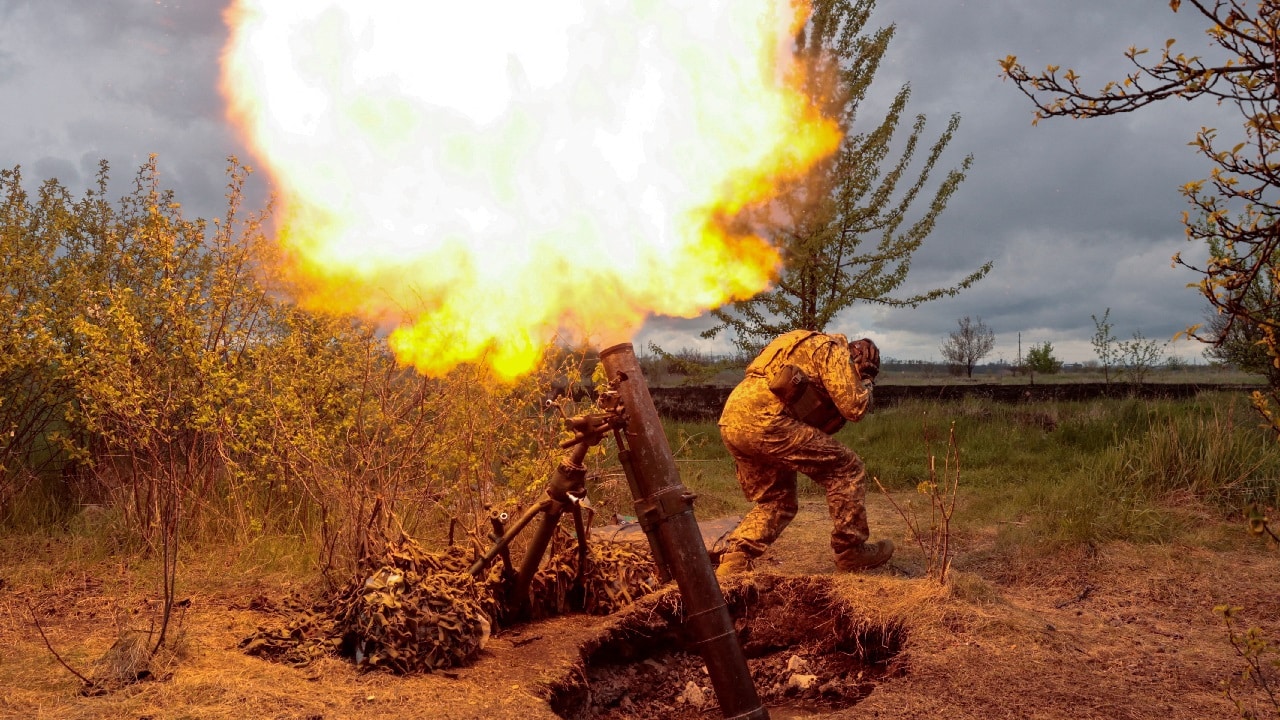Russian President Vladimir Putin and his Kremlin advisers are probably wishing that they had never started the war in Ukraine.
But now that it is underway, they have had to invest their political (and indeed literal in Putin’s case) survival in the war’s success. To everyone in the West, the failures of the Russian military are apparent. But to the everyday Russian, they are not. And all because of the Kremlin and its disinformation.
Ukraine: A Failing War
It is undeniable that the Russian campaign in Ukraine has thus far failed miserably. Based on the Ukrainian casualties figures, which have been corroborated to a certain extent by independent reporting and Western intelligence, Moscow has lost almost 40,000 men killed and potentially up to 120,000 wounded in action.
The Russian military, moreover, has lost thousands of tanks, infantry fighting vehicles, armored personnel carriers, aircraft, helicopters, and miscellaneous vehicles. For a “special military operation” that was supposed to last anywhere between 72 hours and a couple of weeks, that is very bad.
So, naturally, one of the questions is how Putin and his regime have managed to “sell” the Ukraine war to the Russian people. To be sure, Russia is an autocracy (if not a dictatorship) in everything but name. But the popular sentiment is still important (the failed war in Afghanistan, after all, that ended in 1989, was one of the reasons the Soviet Union collapsed in the early 1990s). Putin and the Kremlin understand that, and they have been relying on outright lies and disinformation to hide the complete truth of what is going on the ground in Ukraine and the looming economic disaster caused by Western sanctions from the broad Russian public.
Reading Between the Lines on Ukraine
In a neat Twitter post, the British juxtaposed reality as we know it in the West with what the Kremlin has been selling to its people.
For example, the war in Ukraine contributes to higher food prices that are affecting Russian families too, as well as the rest of the world. But the Kremlin tries to counter that by stating that its actions don’t and cannot influence the food insecurity that is plaguing many parts of the world because of the war.
On the economic front, the Russian Ministry of Economic Development has forecasted that gross domestic product will drop by almost 8 percent, while business leaders are leaving Russia, including approximately 15,000 Russian millionaires who are likely to try to leave the country. But to counter that bleak economic situation, the Kremlin is stating that the economic situation is under control.
“Russian entrepreneurs and authorities have acted in a collected and professional manner [and] step by step, we will normalize the economic situation,” Putin had said on June 18.
On the human cost front, Ukraine and the West know that the Russian forces are suffering devastating casualties (the British government stated that at least 20,000 Russian soldiers have been killed, which is more than twice the number the Soviets lost in ten years of war in Afghanistan), while their leadership is failing them at every turn with a subsequent drop in morale. Indeed, there have been cases where whole units have refused to fight and even instances of armed stand-offs between officers and troops.
To this, the Kremlin is sticking to its line that the war is going well.
“The Russian troops are demonstrating courage, acting in a proper, professional, and effective manner, using the most advanced weapons with unique features,” Putin said back in April after the failures around Kyiv.
“Contrary to the claims of Kremlin elites, Russian families face rising prices and economic woe, while their sons in the army suffer poor leadership and high casualties. It’s time to stop the lies, and end the war,” the British government stated last week.
1945’s New Defense and National Security Columnist, Stavros Atlamazoglou is a seasoned defense journalist specializing in special operations, a Hellenic Army veteran (national service with the 575th Marine Battalion and Army HQ), and a Johns Hopkins University graduate. His work has been featured in Business Insider, Sandboxx, and SOFREP.

